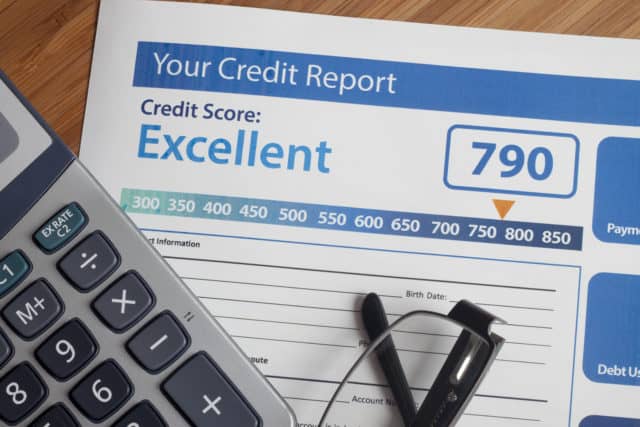Wealthtender is a trusted, independent financial directory and educational resource governed by our strict Editorial Policy, Integrity Standards, and Terms of Use. While we receive compensation from featured professionals (a natural conflict of interest), we always operate with integrity and transparency to earn your trust. Wealthtender is not a client of these providers.

What makes more sense and why…
I’d had it with the next-to-0% interest Bank of America pays on checking account balances.
I bet you feel the same, because it isn’t just my bank, or just checking accounts for that matter.
It’s become next to impossible to get a decent interest rate.
Slim Interest-Rate Pickings Are a Real Problem
If you’re banking at most banks in the U.S., you’re likely getting somewhere between 0% and 0.25% interest on your checking account, with a national average of just 0.03%.
Savings account aren’t much better, with a national average interest rate of only 0.06%.
Willing to lock your money up for a while? Certificates of Deposit, or CDs, offer better rates, but not much. The best current CD rates are just 0.35% for 3 months, 0.55% for 6 months, 0.65% for a year, 1% for 3 years, and 1.2% for 5 years.
The best money market accounts currently offer up to 0.6% interest, unless you’re only interested in parking a limited amount of money there, in which case you might get as much as 2% for balances up to $2000, but as you add to that balance, the blended rate drops under 0.5%.
With inflation running at 7% for the past year as of this writing, money sitting in my Bank of America checking account, “earning” 0.01% interest, actually lost 7.19% of its purchasing power over the past 12 months!
Enter High-Interest Bank Accounts
It’s easy to find lists of high-interest bank accounts.
These are typically offered by small banks and credit unions because they’re exempt from the so-called Durbin Amendment to the 2010 Dodd-Frank legislation. That amendment limited the fees most card issuers can charge merchants for debit card transactions.
Says Merchant Maverick, “This legislation caps the interchange rate paid to non-exempt card issuers at 0.05% + $0.22. A non-exempt issuer is, with some exceptions, a card issuer with assets worth at least $10 billion. The cap applies to both in-person and eCommerce transactions. In other words, while your local credit union or hometown bank is still free to charge whatever they want in the way of debit fees, large, national banks (such as Bank of America and Wells Fargo) are significantly limited in how much they can charge for the same transaction.”
By charging high debit transaction fees, small institutions can make enough money to pay >100x higher interest rates than the national average.
Currently, the highest-interest ones pay up to 4.25%.
A while back, I decided to go this route.
After looking through the various requirements to earn higher-than-average interest, I picked Connexus Credit Union, which pays 1.75%/year on balances up to $25,000.
Compared to any of the above options, it seemed like a clear winner.
However…
3 Reasons Why High-Interest Bank Accounts Aren’t Actually Worth It
1. You Have to Jump Through Hoops
High-interest accounts make you jump through hoops, and if you fail to meet their requirements you get 0% interest (or close to it) that month.
- Debit Transactions: As mentioned above, debit transactions are what fuel the bank’s ability to pay high interest rates. That’s why high-interest accounts typically require you to make 10-15 debit transactions per month. Connexus lets you make as few as one, as long as the total is at least $400/month. Whether one or 15 transactions, you need to move the same amount of money back into the account if you want to maintain the balance on which you get paid interest.
- Maximum Balance: The highest interest available may be limited to the first $2000-$3000 of your balance. If you want to park $25,000 in a high-interest account, you’ll find Connexus’s 1.75% is likely the highest current offer.
- Direct Deposit: Many such accounts require you to set up a monthly direct deposit. If you’re planning to use the account to receive a salary, that’s not a big problem. Since I’m self-employed, this was a non-starter, which made Connexus the better option for me.
- ACH Transfers: Some accounts require you to make monthly ACH transfers into the account. Not that this is difficult, but it’s another thing to stay on top of.
- Bill Payments: Some accounts require you to pay at least one monthly bill. This too isn’t a major issue, but again you need to remember to transfer a similar amount back into the account to avoid losing out on some interest as the account balance decreases.
- Other Requirements: These may include logging into your online banking (sometimes multiple times a month), accepting electronic statements, maximum number of free checks written per month, minimum balance to avoid a maintenance fee, etc. Most of these are just a nuisance.
2. The Interest Payments Are Taxable
Interest payments are taxable. If your marginal tax rate (federal, state, and local) is 30%, it reduces the effective net interest (e.g.) from 1.75% to 1.225%.
3. Paying by Debit You Miss Credit Card Rewards
We try to pay for everything using a credit card that pays a 2% reward on every purchase with no monthly limits. Of course, we always pay off the statement balance in full, to avoid interest charges.
In the case of my Connexus checking, even if I manage to find each month something to pay exactly $400 using their debit card, we miss out on 2% of that $400, or $8. It doesn’t seem like much, but over a year this $96 drops the effective interest further, from 1.225% to 0.841%.
Still good compared to BoA’s 0.01%, but nowhere near as enticing.
Better Options to Earn High Interest Without High Risk
At the moment, the best option I’m aware of is so-called Series I Savings Bonds that you can buy directly from the U.S. Treasury. As of this writing, they pay 7.12% annual interest(!).
Another option is Treasury Inflation-Protected Securities, or TIPS. Recently, these paid 0.125%, but tacked on top of the inflation protection, that’s competitive with the Series I Bonds.
You can see a comparison table between these two options here.
The main points are:
- Purchase limits: Series I are limited to $10,000 per year per Social Security number, while non-competitive buying of TIPS (i.e., you accept the market interest rate) are allowed up to $5 million
- Purchase Increments: Series I $25, TIPS $100
- Life Span: Series I 30 years, TIPS can be 5, 10, or 30 years
- Selling Before Maturity: Series I are redeemable anytime after at least 12 months, but you lose 3 months’ worth of interest if you sell before 5 years go by; TIPS can be sold on the secondary market at any time
Note that bonds may lose value if interest rates increase, and TIPS will lose value if inflation turns negative, becoming deflation. These risks don’t apply to bank account balances (though you’re guaranteed to lose purchasing power there as long as inflation is higher than the after-tax interest rate you’re paid).
Additionally, at least the Series I bonds have to be locked for at least a year, and if you want to avoid losing 3 months’ worth of interest, you need to consider them locked for 5 years.
What the Pros Say
To cross-check my thinking, I asked three financial professionals for their take on this. Here’s what they said.
Myra Alport, Founder, Myra Alport Money Coach says, “Since the Federal Reserve started to increase interest rates, higher-yield savings accounts are a bit more attractive than previously. We can expect to see incremental yields with each Fed announcement like the one expected this week. Sure, interest rates exploded in the 1980s during that period of exorbitant inflation, but these are different times. Every liquid offering out there beyond high-yield savings accounts (I bonds, TIPS, CDs) has limitations of some kind. Even the relatively ‘safe’ bond market is at all-time lows, so what does that tell us? Slim pickings.”
Darryl Lyons, CFP®, Chief Executive Officer, PAX Financial Group likes short-duration bonds, which reduces the downside as interest rates continue to climb. He says, “I like short-duration bond funds as an option in this market. There is still some risk, but with a bit of homework, the proper fund could help.”
Bradley Hilton, Founder, Sonas Financial Planning starts by asking why you’re holding the money in cash, “Generally, you’re likely holding cash for an emergency fund or short-term goal such as buying a house, car, TV, etc. Most people hold cash mostly to have it available (liquid) if and when it’s needed. If that’s the case, you have to accept lower returns for keeping your money in a safe and liquid holding such as checking or savings. If you’re holding cash for something five or more years into the future, ask yourself (or your financial advisor) if that’s the best use of those funds.
“If you do need liquidity, you’re better off looking at high-interest savings accounts vs. high-interest checking accounts. Check the details, as each provider will have different terms (the devil is in the details), but high-interest savings accounts often don’t have minimum transaction requirements.
“Note that if you aren’t well-organized, a high-interest checking or savings account outside your primary financial institution may not be the best idea. You’d just be creating another log-in and password to keep up with. Sometimes keeping things simple is the easiest and best way to go.
“If that doesn’t deter you, I’d suggest linking it to your primary checking account. The point of high-yield accounts is to get a little return on money you need to keep liquid. It won’t do you much good if your emergency fund isn’t linked and your money is hard to access when you actually need it… for an emergency.”
The Bottom Line
Getting an extra $200 or so a year in net after-tax income is nice. However, is it worth the effort of jumping through all those hoops?
For me, the answer is no.
It was a worthwhile experiment, but I’ve concluded that the time, effort, and attention I need to spend to earn that interest are simply not worth it.
Given how inflation is running nearly 9x higher than what I end up with from my Connexus account, I’m seriously considering buying Series I bonds instead.
Are you ready to enjoy life more with less money stress?
Sign up to receive weekly insights from Wealthtender with useful money tips and fresh ideas to help you achieve your financial goals.
Disclaimer: This article is intended for informational purposes only, and should not be considered financial advice. You should consult a financial professional before making any major financial decisions.

About the Author
Opher Ganel, Ph.D.
My career has had many unpredictable twists and turns. A MSc in theoretical physics, PhD in experimental high-energy physics, postdoc in particle detector R&D, research position in experimental cosmic-ray physics (including a couple of visits to Antarctica), a brief stint at a small engineering services company supporting NASA, followed by starting my own small consulting practice supporting NASA projects and programs. Along the way, I started other micro businesses and helped my wife start and grow her own Marriage and Family Therapy practice. Now, I use all these experiences to also offer financial strategy services to help independent professionals achieve their personal and business finance goals. Connect with me on my own site: OpherGanel.com and/or follow my Medium publication: medium.com/financial-strategy/.
Learn More About Opher
Wealthtender is a trusted, independent financial directory and educational resource governed by our strict Editorial Policy, Integrity Standards, and Terms of Use. While we receive compensation from featured professionals (a natural conflict of interest), we always operate with integrity and transparency to earn your trust. Wealthtender is not a client of these providers.







